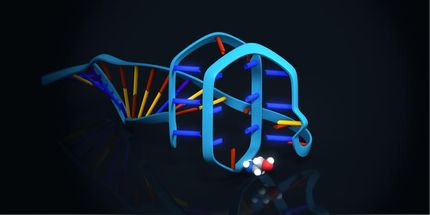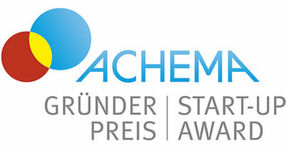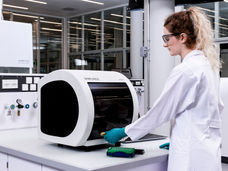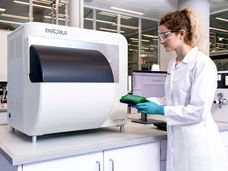Smart fertilization with biosensor strips
Start-up NutriSen gets the laboratory on the field
Advertisement
Precise fertilization using data from the field and from satellites - that is the idea behind NutriSen, a spin-off from the Technical University of Munich (TUM). The start-up has developed a measuring device and an application that farmers can use to generate highly precise and specific fertilization recommendations for their crops. The aim is to reduce nitrogen input and protect the environment.
In agricultural practice, the amount of fertilizer applied to crops is usually based on standardized calculations or empirical values. This can lead to unspecific, inefficient fertilization. This, in turn, leads to environmental pollution and increased costs for agricultural businesses. However, specifically determining the amount of fertilizer required based on the nutritional status of the plants is expensive and time-consuming for farms. NutriSen wants to change that. “What we wanted to achieve is a laboratory in the field, a democratization of data-supported agriculture,” explains Débora Moretti from the LiveSen-MAP research project team. In the project, she and other researchers, funded by the EIC Transition, were able to investigate a technology for precise fertilization.
From plant data to fertilizer recommendations in just a few minutes
Farmers collect plant stalks from their fields and crush them. The escaping substrate is applied to biosensor strips and the measuring device developed by the team determines the phosphate and nitrate values of the plants from the strip. The NutriSen application then creates a high-resolution map of the field in just a few minutes using satellite data from the European Copernicus earth observation programme with the values and corresponding fertilizer recommendations for each section of the field. According to the team, this can reduce the amount of fertilizer used by up to 20 percent.
From the idea to the field test
The team led by Tobias Vöpel and Alaa Oughli already received funding from the EXIST research transfer program in 2021. This allowed the group to grow further, and Débora Moretti joined them in 2022. Together with Nicolas Plumeré, Professor of Electrobiotechnology at TUM, they founded NutriSen in 2023 to test the technology developed in the LiveSen-MAP project and put it into practice.
To found their start-up, they took part in the XPLORE program of UnternehmerTUM, the Center for Innovation and Entrepreneurship. The program aims to prepare teams for founding a company and to establish a network. The support provided by the TUM Venture Lab Sustainability also helped the team, reports Tobias Vöpel: “The Venture Lab also helped us to build up our network. The feedback we received when applying for funding from the European Innovation Council was also particularly valuable - and we were successful.”
The technology is now in the second test phase with agricultural businesses. “The feedback from the first phase has already enabled us to improve the sensors and the application. In the second phase, almost 100 farms are now testing the sensors on site in the field,” explains Débora Moretti. Based on the results of the field trials, the nitrate measurement product is to be launched on the market next year.
Other news from the department business & finance
These products might interest you
Most read news
More news from our other portals
Something is happening in the life science industry ...
This is what true pioneering spirit looks like: Plenty of innovative start-ups are bringing fresh ideas, lifeblood and entrepreneurial spirit to change tomorrow's world for the better. Immerse yourself in the world of these young companies and take the opportunity to get in touch with the founders.

























































